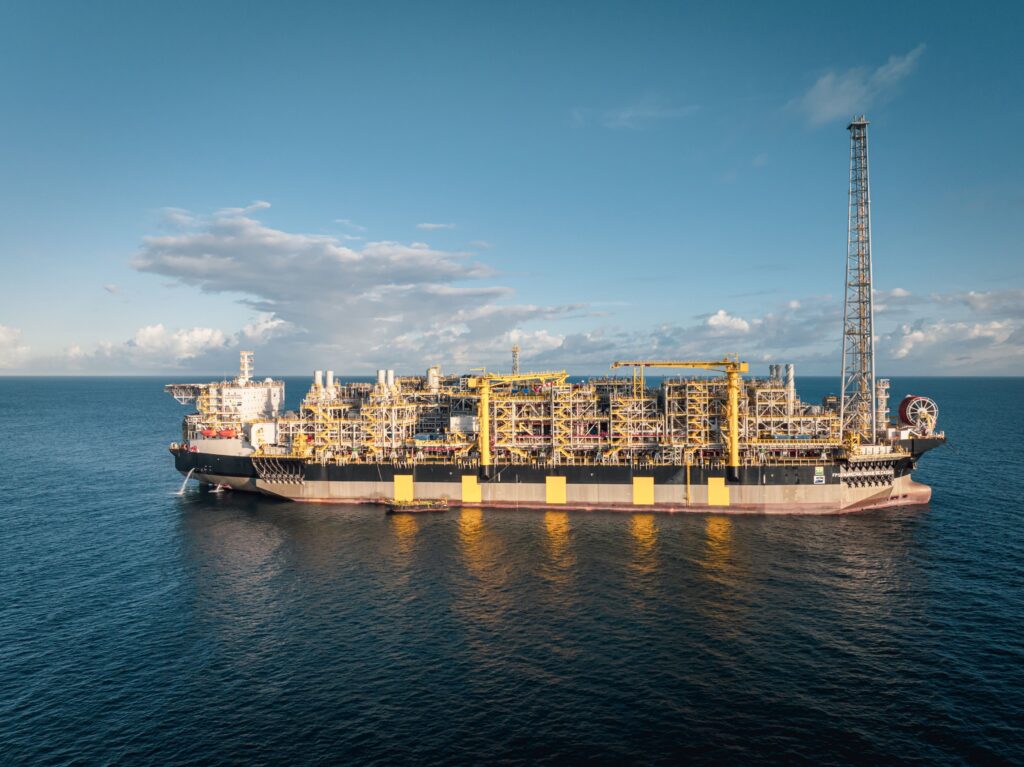The platform ship Marechal Duque de Caxias arrived in Brazil on the 27th May, coming from China and heading to the Mero field, in the pre-salt of the Santos Basin. The FPSO-type platform (floating production, storage and transfer unit) has the capacity to produce up to 180,000 barrels of oil and compress up to 12 million cubic meters of gas, all daily. The unit will come into operation in the second half of this year.
The FPSO left the shipyard in Yantai, China, in February this year and then stopped in Mauritius, Africa, to change crew and move cargo. In Brazil, the unit will be installed in the Mero field, where it will be connected to subsea wells and equipment. Before starting production, the FPSO will undergo legal procedures and final tests of production equipment.
The FPSO Marechal Duque de Caxias, chartered from MISC, will increase the field’s installed production capacity to 590 thousand barrels of oil per day. This production system provides for the interconnection of 15 wells to the unit, 8 oil producers and 7 water and gas injectors, through a subsea infrastructure made up of 80 km of rigid production and injection pipelines, 47 km of flexible service pipelines and 44 km of control umbilicals.
The FPSO is part of Mero’s 3rd definitive production system, in which Petrobras intends to implement, from 2028, HISEP technology, which will separate oil and gas at the bottom of the ocean, from where it will reinject the gas rich in CO2, in a pioneering way. The FPSO Marechal Duque de Caxias has other technologies to reduce emissions, such as CCUS ( Carbon Capture, Utilization and Storage ), where gas rich in CO2 is reinjected into the reservoir.
Petrobras is the operator of the Mero unitized field, conducted in a consortium, whose shares are as follows: Petrobras (38.6%), Shell Brasil (19.3%), TotalEnergies (19.3%), CNOOC (9.65 %), CNPC (9.65%) and Pré-Sal Petróleo SA (PPSA) (3.5%), as the Union’s representative in the non-contracted area.
Read more Oil & Gas news here.


